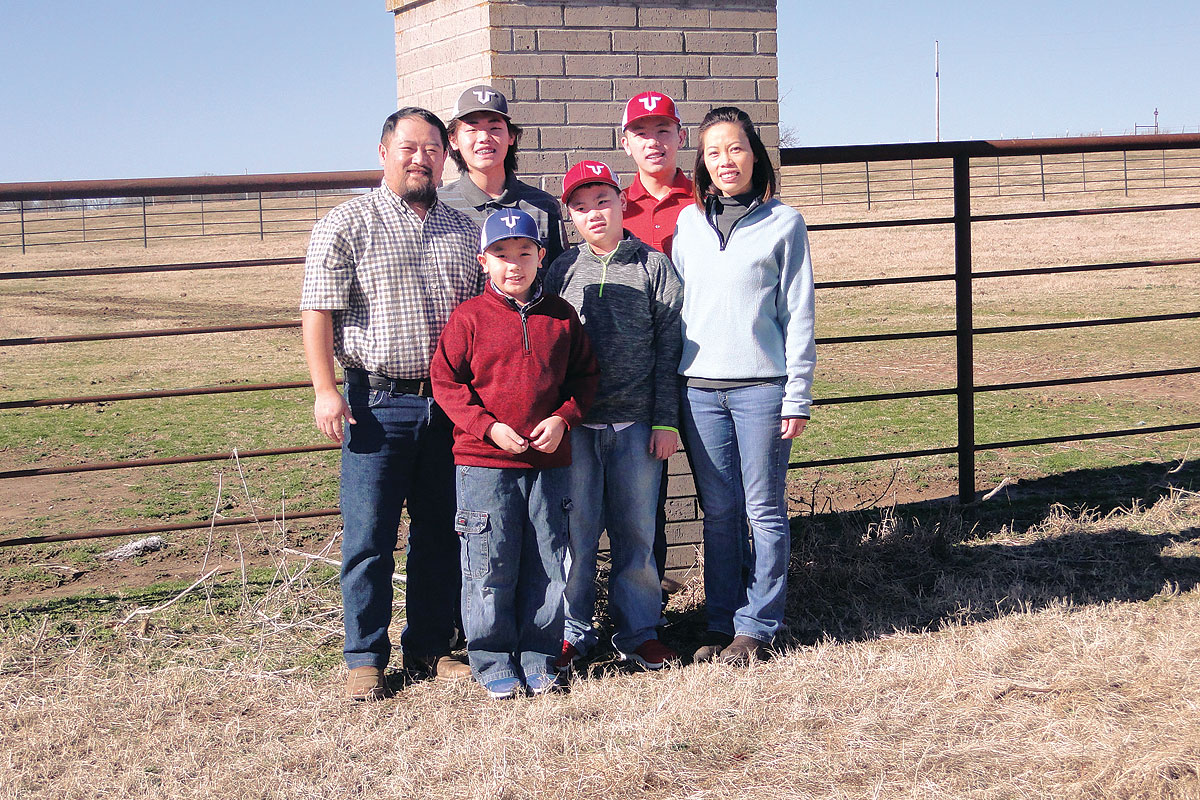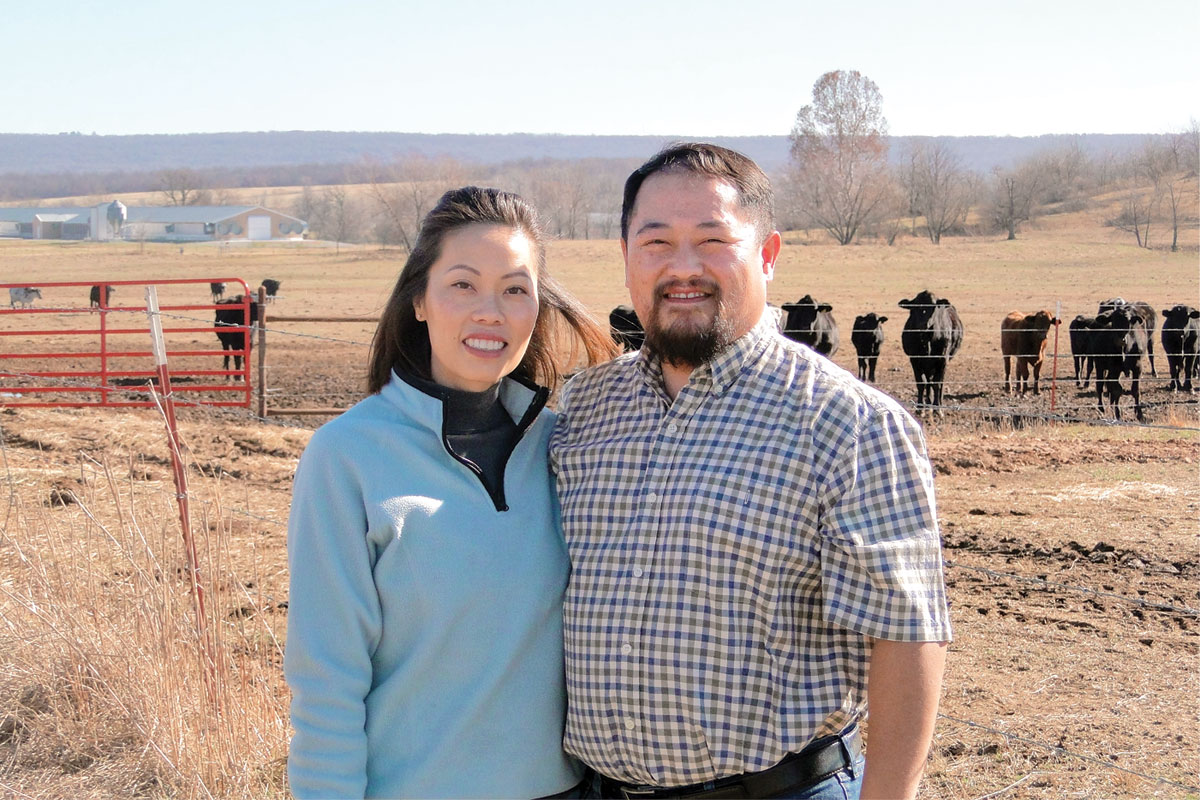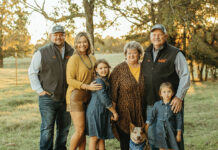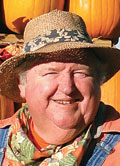
Tou Chao Vang says that heifers not meeting his standards are culled
The Hmong are an ethnic group originating in Southeast Asia, who aided the United States in Laos during the Vietnam War. After the war, many took refuge around the world, some came to America. Tou Chao Vang was originally from Laos while his wife Blia came from a Laotian family, though she was born in a Thailand refugee camp.
The two young Hmongs met in 1991 at a Hmong community in Wisconsin, near Green Bay, during their mid-teens at a traditional Hmong New Year celebration. The couple married in 1994, just after Tou Chao began pursuing a criminal justice degree at the University of Wisconsin-Madison where Blia soon joined him as she pursued her degree in pharmacology.
The couple came to Arkansas in 2004 where Tou Chao worked for the Rogers Police Department and later worked for the Benton County Sheriff’s Office while Blia worked as a pharmacist with Walgreens.
Tou Chao returned to school to become an attorney and now has his own general law practice, as well as teaching online courses for Purdue University Global as an adjunct professor. Tou Chao also serves as a board member with the Washington County Conservation District, a position appointment by the governor of Arkansas.
The couple came to Arkansas because Tou Chao’s father was frustrated with job insecurity in the Wisconsin paper industry and wanted to farm. Tou Chao, his oldest son, and Blia bought a small-acreage chicken farm in Lowell, but soon purchased a 270-acre property in Summers, so Tou Chao’s father could shift to a less demanding breeder operation and so Tou Chao could raise cattle. Tou Chao’s mother was a huge help because she watched the children while the busy couple worked.
The land was ideal because it was a relatively flat plateau and large enough to fulfill Tou Chao’s dream of raising cattle, with 50 acres set aside for poultry breeder houses. Thus the Vang Ranch was established. Tou Chao knew nothing about raising cattle but is a “student of the study,” that is a person who believes in being as thoroughly prepared as possible in all areas by studying a venture thoroughly before beginning. He also believes strongly in learning from others. Consequently, he was aware of consumer preference for Angus cattle, but experimented with several breeds such as Herefords, Charolais, Limousins and Angus before settling on Brangus, which he now sells as his breeding stock.
“Consumers are phase oriented which, in agriculture, currently includes cattle with black hides, brown eggs and non-GMO products,” Tou Chao explained. “The advantages of the Brangus breed include retaining the preferred black hide, low birth weights, combined with competitive weaning and yearling weights, heat tolerance and hybrid vigor.”
The Vang herd now consists of 150 mommas and 12 registered breeding bulls. Every calf has at least one registered parent because approximately 10 percent of the females are registered too. Having everything registered is not necessary since a large part of his customer base is commercial ranchers who don’t need the added expense of registered bulls and replacement heifers. Tou Chao’s goal is uniformity, with those few he would not use for his own breeding stock going to the sale barn.
Because Tou Chao is a full-time attorney, full-time rancher and a full-time parent, efficiency in his operation is critical. He believes success in a cattle operation depends upon sufficient land for the animals. Consequently, they seldom need vaccinations or supplementary feed except for free choice minerals and an occasional protein tub if a small group of animals seem to be experiencing a problem. Because he inspects his herd daily and rotates them frequently, the cattle move willingly when he calls. He uses a 25-acre padlock rotation system with water piped using a solar pump from a well to two waterers whose locations provide water for each of his eight paddocks. However, during summer only four are used with the other four reserved for haying. The Vang Ranch produces all the hay they need, never purchasing a single bale in their 15 years on the ranch and surplus hay is sold.
Tou Chao sells his cattle by word-of-mouth, through return customers and a social media market he developed himself to meet his own needs and to help other cattlemen avoid costly commissions. Arkansas Cattle Exchange evolved because he wanted an easily assessable way to offer quality heifers to a broad customer base at a better price than he could obtain at a sale barn. The word “exchange” is purposeful since social media protocol dictates not using the word “sell” in regards to animals. Tou Chao’s site currently has 3,000 members with people joining daily.
“We ranchers need to help ourselves, and this is one way to do so. Sale barns pay by the pound which is not appropriate for breeding stock. The exchange offers a way for smaller breeders not able to host production sales to others seeking to improve herd genetics more affordably.” Tou Chao said.
Tou Chao has two other social media exchanges, one for hay and one for the famous and highly desirable Blue Valentine/Joe Hancock line of working Quarter horses. Records are not common for working horses, and for a horse’s reputation to extend beyond generations much less nearly 80 years, establishes the line as foundational. Because time is such a precious commodity at the Vang Ranch, his 30-horse herd is used less for ranch work and more for pleasure riding. However, Tou Chao does have young horses he will enter into American Quarter Horse Association competitions. The Blue Valentine Hancock Exchange site offers these outstanding horses to buyers across the country. Labor Day Weekend 2019 will be Tou Chao’s first production sale to be be held at the Benton County Sale Barn in Siloam Springs, Ark. The Vang Ranch, along with partners Marshall Arrington of Arrington Quarter Horses of West Virginia and VAL Brothers LLC., an equine promotional company, will serve as host for horses arriving from around the country.
Tou Chao and Blia have four sons, Caiden (15), Logan (14), Michael (12) and Brandon (9). The two older boys helped their grandfather extensively until he retired from the breeder operation in 2017. All of their sons express desires to pursue professional degrees like their parents, but they will most certainly always have ranching in their blood.







